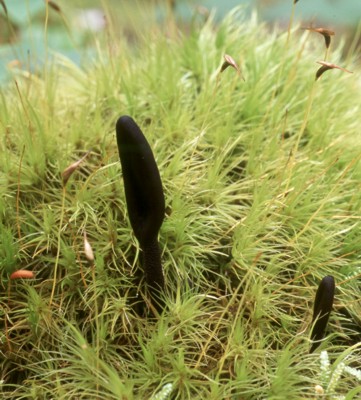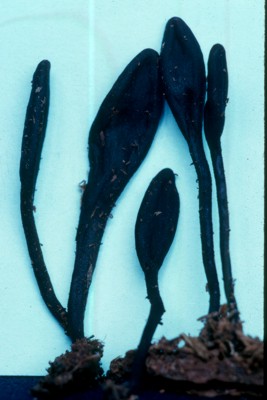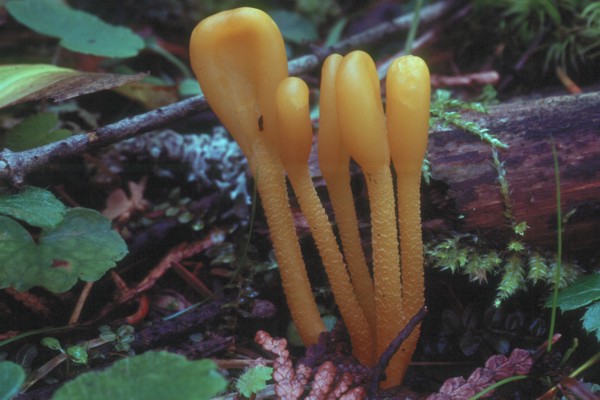Home >> Diversity and classification >> True fungi >> Dikarya >> Ascomycota >> Discomycetes >> Inoperculate Discomycetes >> Geoglossales
GEOGLOSSALES: THE EARTH TONGUES


The Geoglossales form a fairly small group of inoperculate discomycetes distinguished by their tongure-like apothecia and dark many-celled ascospores. Although they do not appear to be greatly different from ofther Leotiomycetes they are in fact rather distantly related to others in the group and may be better placed in a separate subclass. Further work on the molecular genetics of the discomycetes as whole is needed before these issues are properly resolved.
The pictures at left are of species of Geoglossum, one in its natural habitat among mosses and the other post-harvest. Both show the typical tongue-shaped apothecia supported on a short stalk. Only the wide part at the top bears asci. These are common fungi in our woods, usually growing in the ground around old stumps. Trichoglossum, another genus of Geoglassaceae, differs from Geoglossum in having sharp spines among its asci. The two genera are otherwise indistinguishable in the field.

Species of Microglossum, such as M. rufum at right, have traditionally been maintained alongside those of Geoglossum by most authors but now appear to be unrelated. Apparently their stipitate, tongue-shaped apothecia are not a good indication of their genetic relationships. Their ascospores are not dark like other Geoglassales, also an indication of their separateness. Species of Microglossum can be quite abundant in coniferous forests in Canada. We include a discussion of them here because this is where most naturalists will look for them.
One other caveat: species of the genus Cordyceps can easily be mistaken for a species of Geoglossum or Microglossum in the field. Cordyceps species are parasites of insects and subterranean fungi that grow out of the tissues of their hosts. To identify a Cordyceps species you must know the host and must therefore dig down carefully to extract the entire fruiting body, host and all. If you pull one up roughly, thinking it is just another earth tongue you may end up very disappointed later.